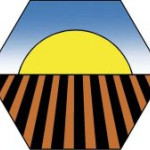- Industri: Earth science
- Number of terms: 26251
- Number of blossaries: 0
- Company Profile:
An international scientific society that fosters the transfer of knowledge and practices to sustain global soils. Based in Madison, WI, and founded in 1936, SSSA is the professional home for 6,000+ members dedicated to advancing the field of soil science. It provides information about soils in ...
Quality, state or degree of harmful effect from an essential nutrient in sufficient concentrations in the plant.
Industry:Earth science
Fraction of soil organic matter that is soluble in both alkali and dilute acid.
Industry:Earth science
An equation representing the three-dimensional flow system that accounts for conservation of mass or energy.
Industry:Earth science
Entisols that are saturated with water for periods long enough to limit their use for most crops other than pasture unless they are artificially drained. Aquents have low chromas or distinct mottles within 50 cm of the surface, or are saturated with water at all times.
Industry:Earth science
Inorganic bodies derived from replacement of plant cells; they are usually opaline.
Industry:Earth science
Group name for the oxides and hydroxides of iron. Includes the minerals goethite, hematite, lepidocrocite, ferrihydrite, maghemite, and magnetite. Sometimes referred to as "sesquioxides," or "iron hydrous oxides".
Industry:Earth science
Inceptisols formed in cold or temperate climates that commonly have an umbric epipedon, but they may have a mollic or an anthropic epipedon 25 cm or more thick under certain conditions. These soils are not dominated by amorphous materials and are not saturated with water for periods long enough to limit their use for most crops.
Industry:Earth science
Poorly drained depressional soils of the grassland and parkland regions of Canada with bleached A2 (E) horizons and finer-textured B horizons.
Industry:Earth science
Pertaining to the entire spectrum of fragmental materials with a preponderance of clasts of volcanic origin. The term includes not only pyroclastic materials but also epiclastic deposits derived from volcanic source areas by normal processes of mass movement and stream erosion. Examples: welded tuff, volcanic breccia.
Industry:Earth science
